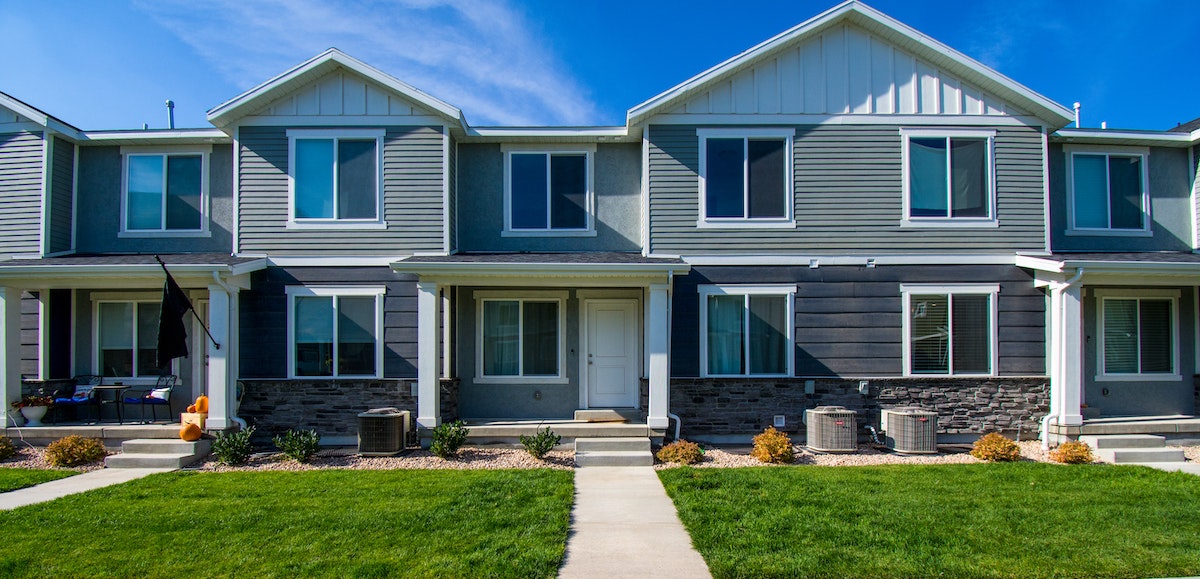California
What San Diego Landlords Need To Know About Legal Liabilities
Last Updated Apr 10, 2023


You probably know that landlords in San Diego have a duty of care to provide a safe and habitable home for their tenants to live in. But how far do these responsibilities go? Are you liable for what happens in the home while tenants are living there? What disclosures do you need to make about your home before it goes on the rental market in San Diego?
While often falling under the broader laws in the State of California, there are also local ordinances unique to the City of San Diego that homeowners on the rental market need to be aware of. As a popular tourist destination, San Diego has new laws to curb vacation rentals, but this article will focus on long-term rentals.
To help you prepare for responsibilities, liabilities and disclosures on a rental home, this article will answer 6 common questions on landlord responsibility in San Diego:
- What are my responsibilities as a landlord in San Diego?
- What disclosures do I need to make about a rental home in San Diego?
- What are landlords in San Diego liable for in their rental home?
- Are landlords in San Diego responsible for noise complaints?
- What are the reasons I can evict a tenant in San Diego?
- Does San Diego have rent control laws?
Disclaimer: We don’t enjoy using the word ‘landlord’. We prefer to refer to members in our network as homeowners and residents, not landlords and tenants, since we’re on a mission to upend and redefine the traditional landlord-tenant relationship. That said, sometimes the words tenant and landlord need to be used to provide clarity on legislation or legal matters — so in this article we use them interchangeably. This article provides a guide for homeowners of residential property for rent in San Diego, but should not replace legal advice. Renting a home can create unique situations, so be sure to consult a property expert or lawyer to discuss or remedy an exact situation.
1. What are my responsibilities as a landlord in San Diego?
Renters in San Diego have legal rights in homes they live in under local and Californian state law. As the homeowner and landlord, you have a responsibility to make sure that these legal rights are met.
In San Diego, it is the landlord’s responsibility to ensure that:
- You follow local tenant-landlord laws including local laws on rent increase caps and evictions
- The home you rent out is maintained and kept in a livable condition, ensuring the health and safety of the residents
- You don’t enter the property without proper written notice, unless in an emergency situation or if the property has been abandoned
- You return the security deposit when residents move out, unless you have a legal claim against the amount such as unpaid rent or damages
- You don’t evict a tenant unlawfully
- You don’t force the resident out unlawfully by turning off the utilities or changing the locks
- You treat your tenant “fairly and in good faith”, which means acting with honesty and taking reasonable steps to comply with local laws and your lease agreement
Your home must be in a livable condition under California’s “implied warranty of habitability”. This means that you are legally responsible for keeping the home in such a way that it’s safe for humans to live in, addressing any defects that make it unsafe or unlivable. This means it’s a landlord’s responsibility to provide a home that has:
- Suitable protection from weather, including unbroken doors and windows
- Hot and cold running water and sewage disposal
- Provision of electricity (in good working order)
- Heating in good working order
- Bathroom facilities in working order such as toilet and shower
- Natural light and ventilation
- Operable locks on doors and windows
- Working smoke detectors that are up to local codes
It’s the tenant’s responsibility to ensure that they also keep the house in good condition and don’t cause any damage that could create an uninhabitable home.
2. What disclosures do I need to make about a rental home in San Diego?
When renting out your home in San Diego, you must make the following disclosures either in your lease agreement or prior to signing:
1. Toxic mold: If your home has mold present, you should take steps to remove and repair the issue. You also need to disclose any mold to potential residents and provide them with a state-issued handbook on the health risks of mold.
2. Pest control and bed bugs: If you have regularly hired pest control services and they have used (or will be using) chemical pesticides in the home, you must disclose this information to residents. Provide a notice from the pest control company on the pest controlled (or to be controlled), the pesticides used/proposed and the active ingredients. You must also inform prospective residents on how to prevent and treat bed bugs.
3. Intent to demolish the unit: If you have applied for a permit to demolish the housing unit, you will need to disclose this to potential residents before accepting any fees (including tenant screening).
4. No smoking policy: If you have a no smoking policy, this must be disclosed in the lease agreement, including details of where smoking is limited or prohibited.
5. Flood risk: If your property is in a flood zone or in an area that carries a known flood risk, you must disclose this information to potential residents. This includes if you carry flood insurance required by your mortgage lender, along with a statement that this insurance will not cover any loss to their property. Residents need specific renter’s insurance to protect their property from flood or other loss, which Belong makes available to all residents in our network.
6. Methamphetamine contamination: If your home is subject to a remediation order for methamphetamine contamination, you must provide written notice and a copy of the order to all rental applicants of your property. It must also be acknowledged by the tenant and attached to a rental agreement before signing, otherwise the agreement may be void.
7. Death on the premises: If any occupant died on the property within the last three years, you must disclose this fact to prospective residents.
8. Carcinogenic or hazardous material: The State of California recognizes that exposure to certain chemicals, such as lead, arsenic, asbestos and benzene could cause cancer, birth defects or other reproductive harm. If you have any knowledge of chemical-related hazards or lead paint in your home (particularly if built before 1978), you will need to disclose this to prospective tenants and take additional precautions or actions, depending on the nature of the hazard.
There are other standard disclosures and information that must be included in a lease agreement under California law, which can be found in the Guide To Residential Tenants’ And Landlords’ Rights And Responsibilities. The easiest way to stay informed and compliant is to let someone else manage this for you, such as a property manager or modern alternative like Belong.
3. Can a landlord be held liable for their tenants’ behavior in San Diego?
This is a tricky area, but yes, there are certain liabilities that can exist for homeowners who have tenants that are knowingly creating a nuisance.
Say for example your tenant is conducting criminal activity, or damaging the neighbor’s property — you have a responsibility to evict the offender. Similarly, if a neighbor complained to you about the damage or behavior from your residents and you fail to take action, you could be held liable.
In this scenario, you (or your property manager or representative) should investigate the complaint to determine what happened. It could be a simple misunderstanding or in the instance of a noisy party, the resident may never do it again. If lease violations have occurred, you will need to provide written notice and you may need to take steps to evict the tenant to prevent further damage.
4. Are landlords in San Diego responsible for noise complaints?
Yes, there are two ways in which noise complaints can become your responsibility if it’s affecting your rental property. The City of San Diego requires reduced noise levels between the hours of 10pm - 7am in residential zones.
1. Noise complaints from your tenants.
Residents in your home have a right to “quiet enjoyment” of the home, so they can complain to you about noises and you need to take action with neighbors or the police. Failure to do so could result in a lease violation and give them cause to move out without penalty.
2. Noise complaints about your tenants.
If you are receiving complaints about noisy residents, you will need to get in touch with them to discuss the matter. Keep accurate records of the complaints and frequency and issue a written notice to the tenants if needed. If you have to notify your tenant for noise complaints on three or more separate occasions, you could have grounds for eviction for violating your lease agreement. If you refuse to take action against noisy tenants, you yourself could be penalized.
This advice applies to homeowners who are self-managing a rental home. If you partner with Belong, we handle all communication between you and your residents, including noise complaints and how to proceed with written notices and violations.
5. What are the reasons I can evict a tenant in San Diego?
At the time of writing, San Diego County allows “no fault” evictions, which means you don’t need to have an approved reason to end a lease with a tenant in your home. This could change in 2023. A draft ordinance being considered by The City of San Diego to ban no fault evictions, unless:
- You intent to take the rental off the market and have provided six months notice
- You need to repair or renovate the property in a way that requires it to be vacant
- You or an immediate family member want to move into the home after providing at least 90 days written notice
If the law does pass, you still have the right to evict a tenant if they don’t pay rent, violate their lease, become a serious nuisance to neighbors/other tenants, or engage in wrongful or criminal activity.
In San Diego, eviction takes place through an “unlawful detainer” court case via the San Diego Superior Court. You need to give adequate written notice first, which varies depending on the reason.
Read More: Understanding the California Eviction Process: A Guide for Homeowners
6. Does San Diego have rent control laws?
San Diego itself does not have local rent control laws — but there are statewide rental ordinances that apply for homes in California. For example, if you wanted to raise your rent this would currently be capped at 10%. This is because the California Tenant Protection Act of 2019 caps annual rent increase by either 10% or 5% plus the local inflation rate (CPI) — whichever is lower. In 2022, San Diego’s inflation rate was 8.2%, making the CPI + 5% rate above 13%.
Single-family homes and condominiums are exempt from these rent control rulings, but only if the property is not owned by a real estate trust, corporation or an LLC.
Before renting out your San Diego house, speak to Belong
Belong is proud to offer our long-term residential rental experience to San Diego, helping homeowners to navigate everything from placing the right people to staying compliant with local legislation. Our local team has over 40+ years of real estate industry experience in the San Diego region.
Whether you’re new to real estate investing, have inherited a house, are dealing with a problematic property management company — or even burnt out on self-managing your rental homes, Belong can help.
Find out if your San Diego home is eligible and learn more about how Belong can provide an outstanding rental experience for both you and your residents, here.
About The Author
Melanie Kershaw
Mel Kershaw is a Content Lead at Belong. With an extensive background working with technology companies including Eventbrite and Yelp, she’s always looking for ways to create educational and informative articles that simplifies tech and solves problems for her audience.




